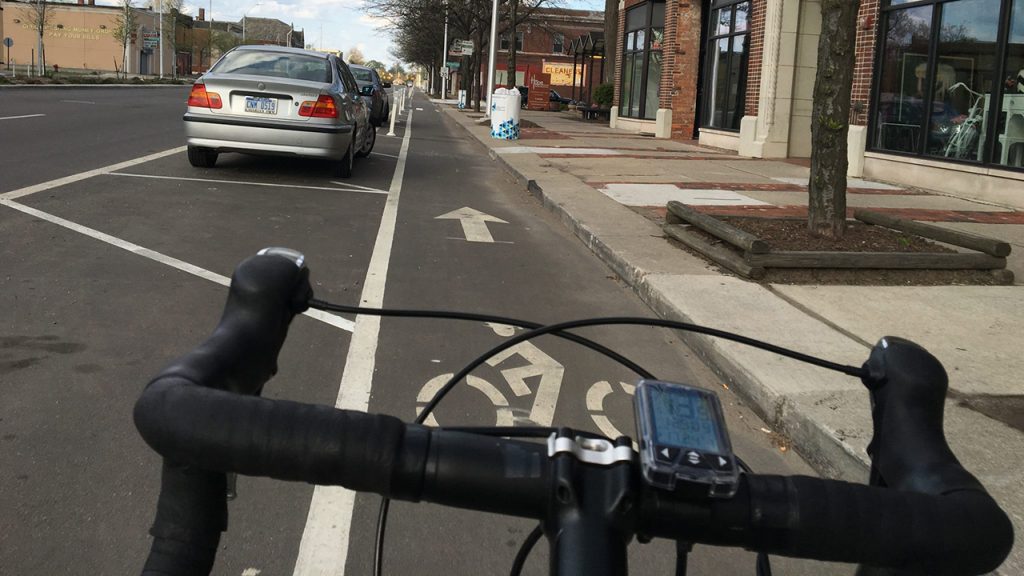Detroiters may be learning to live with bike lanes
Pat Batcheller January 13, 2022Bike lanes on city streets have been controversial for years. But new reporting from Bridge Detroit shows more people are using them and attitudes may be changing.

A protected bike lane in Detroit.
Detroit has more than 250 miles of dedicated bicycle lanes on its streets. The city has spent millions of dollars to establish bike lanes as another way for people who don’t drive to get around.
The cost, location, safety and even the aesthetics of bike lanes have been controversial for years. But attitudes toward them may be changing in their favor.
Bridge Detroit reviewed data from the Department of Public Works and found that more people have been using bike lanes since the COVID-19 pandemic began.
Journalist Bryce Huffman says the city gleans information from cameras positioned at about 200 stoplights.
What a lot of people should start doing is getting active in these meetings, talking to their city leaders and elected officials about what they want to see.” —Bryce Huffman, BridgeDetroit, on public attitudes toward bike lanes
“They use them to monitor pedestrian traffic, bike traffic and car traffic,” he says. “They were able to use data from those cameras to say there are more people using bike lanes.”
From Bridge Detroit: How do Detroiters REALLY feel about bike lanes?
Some of the lanes are protected by devices called bollards to separate bike and motor vehicle traffic, but most are not.
“They don’t necessarily provide the greatest level of protection, but it’s something that would signal someone driving a car not to swerve into the lane,” Huffman says.
In talking with people, Huffman found many who were skeptical of bike lanes are more accepting of them now. But they don’t necessarily like the way the city has implemented them.
“Some who’ve lived here for a long time view them as a sign of gentrification,” he says. “They see it as a way to attract people who are not from here.”
The city continues to install bike lanes, and there’s no indication that will change. Huffman says if people want a say in the process, they need to get involved.
“Part of the problem is that people who are not necessarily the most active in their community are not always aware of the meetings where planning and street design usually occur,” he says. “So what a lot of people should start doing is getting active in these meetings, talking to their city leaders and elected officials about what they want to see.”
Bridge Detroit is a reporting partner with WDET.
Listen: Why bike lanes have been controversial in Detroit.
,
Trusted, accurate, up-to-date.
WDET strives to make our journalism accessible to everyone. As a public media institution, we maintain our journalistic integrity through independent support from readers like you.
If you value WDET as your source of news, music and conversation, please make a gift today.
